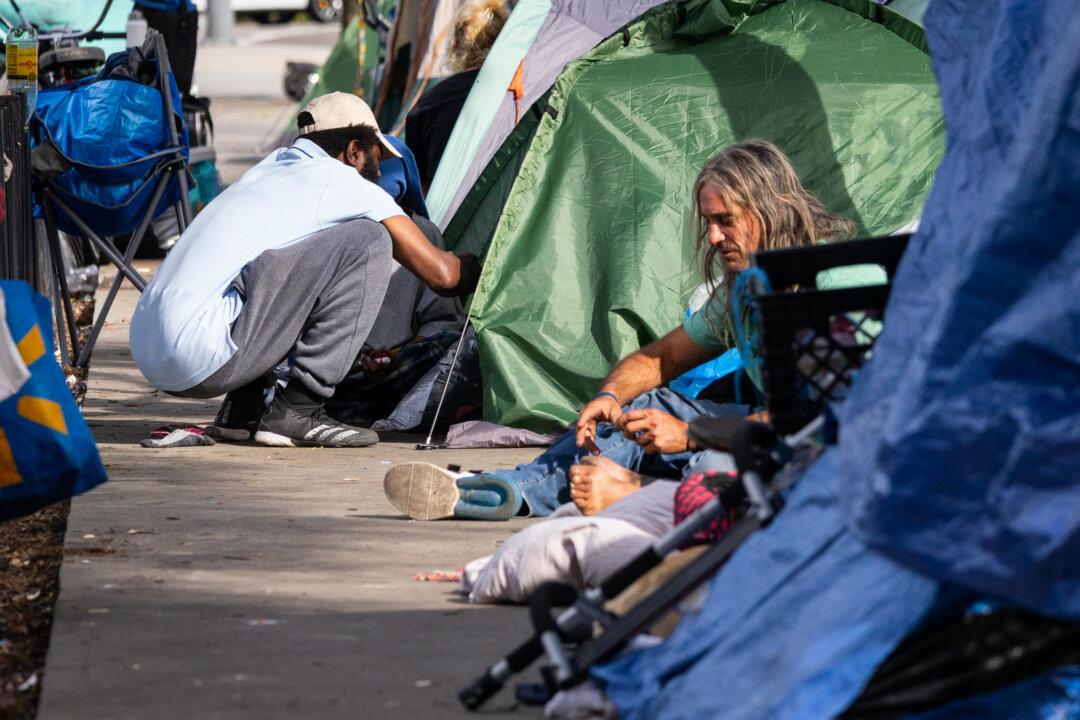A bipartisan coalition of Democrat and Republican senators, led by Minority Leader Brian Jones—and joined by local officials and homeless advocates—last week unveiled Senate Bill 1011, which aims to “compassionately” clear homeless encampments across California.
“Californians should not have to tolerate the encampments that now fill our open spaces with trash, needles, and human waste,” Mr. Jones said during a press conference Feb. 6.





